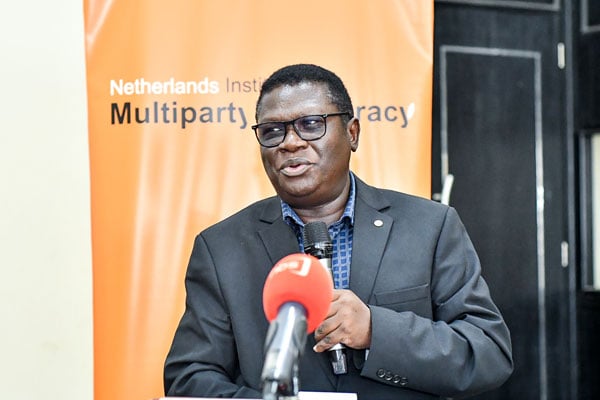Prime
Uganda’s search for a peaceful transition

President Museveni. PHOTO/FILE/COURTESY
What you need to know:
- Uganda’s blood-stained bid for peaceful change has, for all intents and purposes, been undermined by a leadership that has largely been responsible for the chaos that has unfolded throughout its dark history.
The Justice and Constitutional Affairs minister, Norbert Mao says this is the only thing the President needs to do such that all the progress achieved over the last four decades does not go waste as it would in the event of a chaotic change of guard occurring again.
Attempts at a political transition in Uganda since Independence in 1962 have witnessed an orgy of bloodletting with various, if not all, regime changes having been marked by devastating instability, armed violence and gross human rights abuses that have left the country in ruins and thousands of people dead.
Regime critics refer to the weakness of key institutions, including Parliament and the Judiciary that they say have not provided the necessary checks on an overbearing Executive as stand-out reasons for this state of affairs. Uganda’s blood-stained bid for peaceful change has, for all intents and purposes, been undermined by a leadership that has largely been responsible for the chaos that has unfolded throughout its dark history. This has resulted in a failure of democracy as a vehicle for change.
Where presidential elections have been marred by glaring electoral malpractice and non-compliance with the elections law, the Supreme Court has acknowledged their detrimental influence in its findings following petitions. However, the same court has repeatedly stopped short of the crucial next step which would be to overturn a legitimately contested result.
In that environment, Parliament was steam-rolled, some say bribed against the backdrop of the disturbing reports of the Shs5 million handshake to pro-regime MPs, into lifting the two-term limit for the President, which had been written into Article 105(2) of the Constitution. On the other hand, military special forces mounted a brutal and unprecedented raid on Parliament where they attacked Opposition MPs as the 75-year age limit was also expunged from the Constitution through controversial deletion of Article 102(b) despite an almost nationwide opposition to the push.
Several political theorists have posited in their writings in the press and elsewhere that at the heart of the crisis of change is the question of entrenched leadership. Where incumbent leaders have historically sought to concentrate power in the presidency so as to perpetuate their stranglehold on power, democracy has been undermined, and hopes for a peaceful transition diminished. The President, for instance, appoints the judges and the Electoral Commission which, by implication, suggests that they are beholden to that office and, therefore, ineffective as neutral midwives of any transition process.
In the current political environment, references are routinely made to the constitutional amendments in 2005 and 2017 to remove the presidential two-term limits and age limits, respectively as reasons for the uncertainty now facing the country. These amendments enabled President Museveni to run again for re-election – with his critics saying this was part of an undeclared life presidency plot.
What has been more damaging is that elections in the country have rarely, if at all, ever been free and fair. Ballot stuffing and other nefarious forms of vote rigging are common place as the record shows in findings of the Supreme Court in the 2006, 2011 and 2016 presidential election petitions, among others.
It is only when this is addressed, pundits say, partly by having a truly independent Electoral Commission and a Judiciary courageous enough to take a stand on the facts, that a peaceful political transition through an election can be contemplated.
Years before that, when Article 269 was included in the 1995 Constitution, it proscribed political party activity until it was repealed in 2005 by Parliament. The provision had relegated multipartyism to the periphery and facilitated domination of the political space by the ruling National Resistance Movement establishment, Without a thriving multi-party system, it became impossible for democracy to breathe. It made the thought of a peaceful political transition distant.
Coupled with that, the establishment has conscripted the security forces into its self-serving politics, making life miserable for Opposition figures who continue to be intimidated, jailed and sometimes killed – making it impossible for them to constructively participate in the country’s politics.
Against that background, Justice and Constitutional Affairs Minister Norbert Mao has now said it is time for an honest debate on how to deliver a peaceful political transition to Uganda.
Compiled from Daily Monitor archives.




